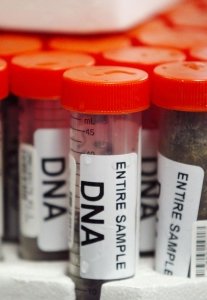It’s a big, a huge victory for law enforcement agencies – a divided Supreme Court on Monday ruled that police can take a DNA sample from someone who has been arrested and charged (but not convicted) with a serious crime. 
It was the narrowest of margins, but with a “score” of 5-4, the court reversed a decision last April by Maryland’s highest court that overturned the 2010 conviction and life sentence of Alonzo Jay King for a rape committed seven years earlier.
The matter of DNA testing is a touchy, delicate matter. DNA profiling (also called, DNA typing, or genetic fingerprinting) is a technique employed by forensic scientists to identify individuals based on DNA – it is one of the most accurate identification techniques (though it has its flaws).
Now, DNA samples can be taken if police have probable cause to detain a suspect facing charges relating to a serious offense, officials announce.
Taking a sample using a swab of the cheek is “like fingerprinting and photographing, a legitimate police booking procedure,” Justice Anthony Kennedy said. Justice Kennedy is an Associate Justice of the Supreme Court of the United States who was appointed by President Ronald Reagan in 1988.
This, law enforcers believe, will help solve hard to crack cases, and that this doesn’t violate the Fourth Amendment. However, there is a strong opposition voiced against this measure.
Justice Antonin Scalia, a conservative, joined Justices Ruth Bader Ginsburg, Sonia Sotomayor and Elena Kagan, all from the liberal wing of the court in dissenting with this opinion – they claim that this opinion “taxes the credulity of the credulous”.
They explain that taking DNA is not really that standard of a process – when somebody is arrested, he is immediately fingerprinted and photographed, but DNA sampling is not the same thing.
The technique was used for several decades now. In the 1950s, Anna Anderson claimed that she was Grand Duchess Anastasia Nikolaevna of Russia. Three decades later, DNA testing she was an impotor. In 1986, Richard Buckland was exonerated in a very strange case, despite having admitted to the rape and murder of a teenager near Leicester, the city where DNA profiling was first developed. In the same case, Colin Pitchfork was convicted on the same basis.

